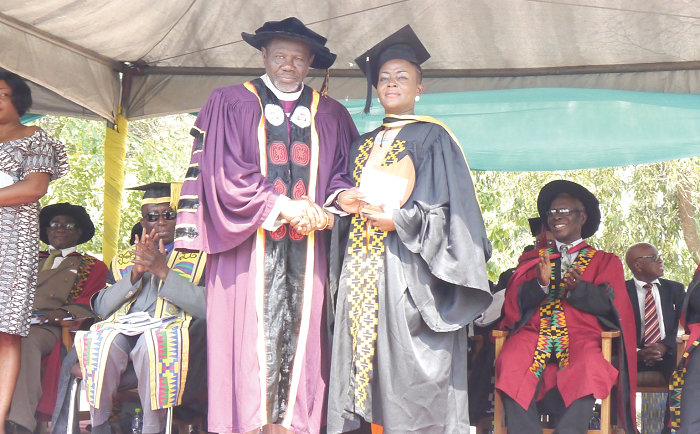
‘Apply practical knowledge in solving scientific problems’
The President of the Ghana Technology University College, Professor Osei K. Darkwa, has urged students to practically apply knowledge in solving scientific and technological problems to leverage growth and development.
According to him, science and technology had far advanced and countries had moved from the industrial technology age and were cruising in the age of information and communications technology (ICT).
Addressing the 14th congregation of the Methodist University College of Ghana (MUCG) last Saturday in Accra, he said, “I believe technology is the hinge that will give our nation that impetus to leverage growth and development.”
Prof. Darkwa said critical thinking required that students should think outside the box and find alternative means of circumventing complicated systems and circumstances by coming out with their own results that provided the required answers to societal problems.
“To do this, you may sometimes need to challenge the status quo; you must dare to be different,” he said.
The graduation ceremony saw about 1, 773 graduates being awarded various certificates.
Entrepreneurial skills
In a speech read on his behalf, the Vice Chancellor of the University of Ghana, Prof. Ebenezer Oduro Owusu, urged the students to make use of their knowledge, acquire entrepreneurial skills and venture into private enterprises.
He advised them to make themselves relevant in order to be employable.
“The MUCG has given you a passport to your future, therefore, students should make use of all opportunities,” he said.
He encouraged all stakeholders of the MUCG to work together towards the accelerated growth and development of the university.
National Research Fund
The Principal of MUCG, Prof. Asabere-Ameyaw, called for an expedited action on the setting up of a National Research Fund which would be accessible by researchers in both public and private as well as research institutions.
“I entreat all stakeholders and direct beneficiaries of research, particularly the industry, financial institutions and commercial houses to include in their annual budgets, scholarships for postgraduate studies,” he said.
Prof. Asabere-Ameyaw explained that it had become imperative for university teachers to have doctoral degrees, and noted that pursuing doctorate degree courses had serious financial implications.
